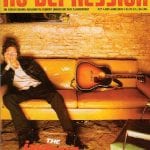Peter Guralnick – People Want To Tell Their Stories
I’ve stayed in touch with most of the people I’ve written about over the years. Many of them I’ve become friends with. I’m not trying to associate with the stars but to be with people to whom I’m drawn. The thing that has struck me in my occasional adventures in documentary filmmaking is that there are some people who never go back. They hit town, get what they want, leave, and never go back. That’s a very different thing from what I’m trying to do, which is to write something that’s true.
I first wrote about Charlie Rich in 1970. I’ve never met anybody that I’ve liked more on first acquaintance than Charlie and his wife Margaret-Ann. Yet I couldn’t allow my affection for them to distort telling as true a story as I could. And I worried, when the book came out, that I’d never see him again. It wasn’t the darkest tale in the world, but the story that he told was about depression, alcoholism, and guilt. I couldn’t soft-pedal that. That was the story.
I’ve never felt more relieved than when the secretary at my publisher’s office, Margaret Peete, called me up after the book came out and said, “Peter, Charlie Rich just called and ordered 30 books.” I mean, if he never had contacted me again that would have been the end of it. It would have been presumptuous of me to assume a connection, but she said that he wanted to give books out to members of his family because it might not be a pretty story but it was a true story. I was thrilled at that and, subsequently, we stayed in touch….
But at the same time, friends or not, there are a lot of people that I simply can’t write about again, because friendship has superseded my ability to be effective. In Charlie’s case, I went back several times, but then, at a certain point, I could no longer write about him. I think that’s true of many people I’ve written about.
I’ve got a trust to keep with the subject, which is to treat the person or the subject that I’m writing about with the respect and dignity that they deserve. But the second trust that I have is with the reader and with myself, to tell an honest story irrespective of the consequences.
ND: That’s gotta be a tough line to walk.
PG: It is — to realize you could set a foot wrong. And if what you’re doing is valuing the connection more than the truth, then you’re going to falsify your story, or you’re going to run the risk that you won’t know anymore.
II. TO RENDER THE PARTICULARITY OF THINGS WITHOUT ASSIGNING A VALUE
ND: Whenever I read your stuff, I think of the William Carlos Williams quote, “The pure products of America go crazy,” that you use as an epigram for your first chapter on Elvis in Lost Highway. It strikes me that that notion or insight is a subtext, if not perhaps the subtext, of most of your writing. Is that valid?
PG: Yeah, without being preachy about it, it seems to me that there’s an inherent contradiction in somebody going away from home to sing songs of home and never being able to return home. The commodification of the things that we care about most is an inherent contradiction. But it’s an ambiguous quote, one that I wouldn’t try to tie down too much. I don’t know if you’ve ever read [Williams’ poem] “Paterson”, but when he writes, “Burn, recreant fire, burn,” [the fire] burns down the library; it burns down all the knowledge that has been codified in such a way that it’s no longer alive.
One of the things I’ve always aspired to is the kind of plainspokenness of the William Carlos Williams aesthetic. As a kid in high school, they had us read “So much depends upon a red wheelbarrow.” It was put in the text as an example of an inadequate poetic response. When I read it, I just was sold, and I’ve read a tremendous amount of William Carlos Williams, including his novels, his short stories and his poems.
It seems to me that the challenge of good writing, whether it’s William Carlos Williams or Robert Stone or Lee Smith or Alice Munro, is to render the particularity of things without assigning a value, and by rendering that particularity, to suggest a broader world. In other words, by presenting the microcosm to suggest meaning and dimension. I’m not saying I’ve achieved it, but what I’ve tried to shy away from is this standing on a soapbox and announcing my opinions, or attaching adjectives to color the picture in a cheap way. I want a depth of field, and I think that you can only get that depth of field out of particularity.
ND: Another recurring theme in your writing is race, particularly the way that African-American and European-American cultures converge, and often collide, and the effect it has had on pop music. This thread is central to any discussion of American popular music, but you seem more attuned to it than most writers.
PG: I think I grew up with an awareness of race. I grew up in the world after the Second World War. I was born at the end of ’43 and met my father upon his return home at the end of ’45. My grandfather lived just down the street from Braves Field, before the team moved to Milwaukee, and we’d go to games. One of the reasons that we were Braves fans, and this was 1950 when I was 6, was because the Red Sox were a racist organization that refused to sign black baseball players.




